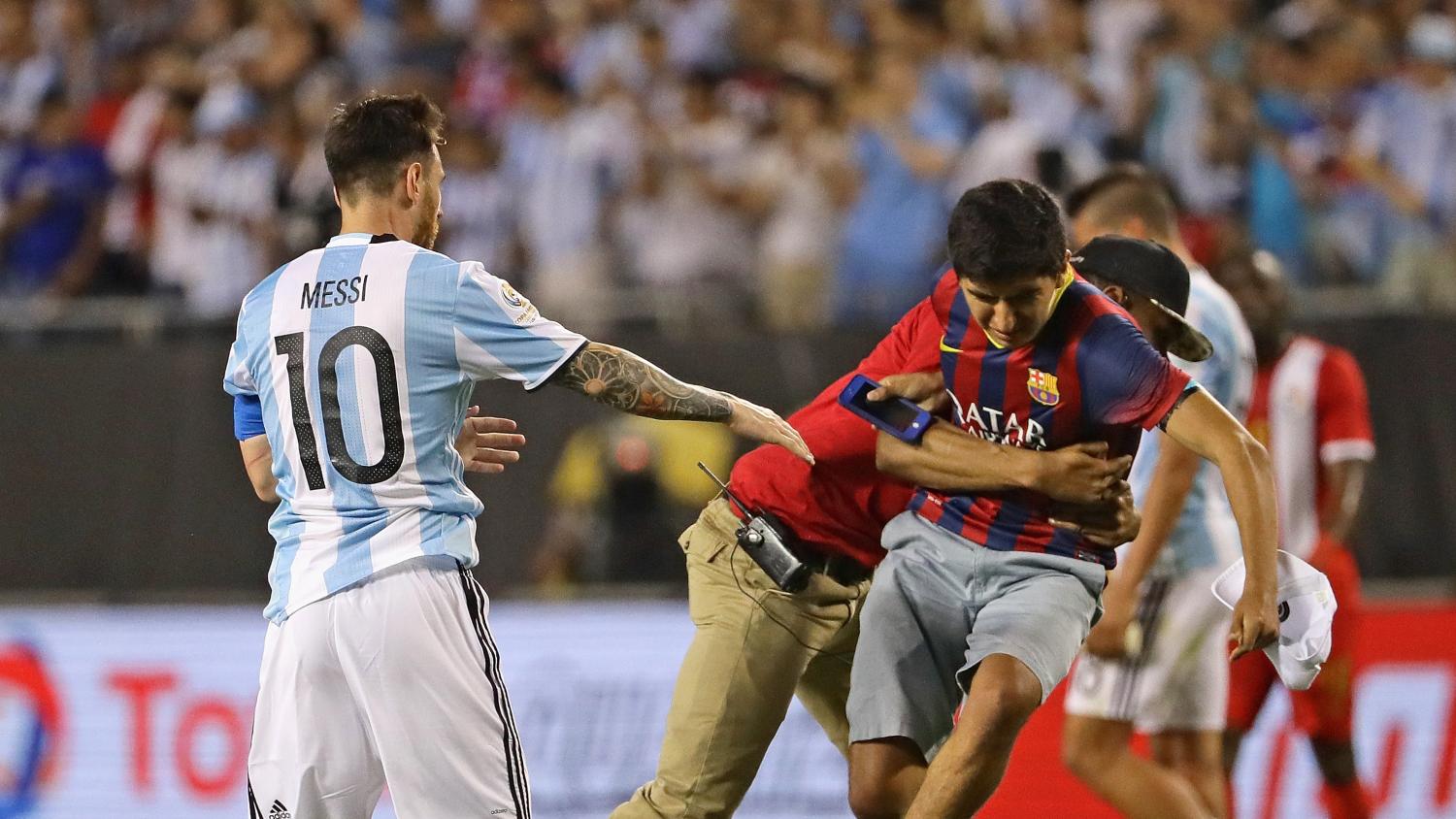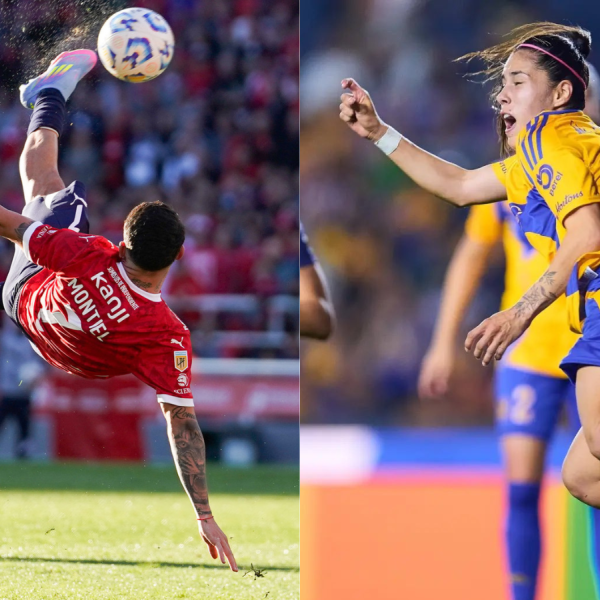Messi was coming.
For the first and only time — barring a grizzled move to Inter Miami — the greatest footballer ever was going to play competitive matches on American soil. The fact that it was the Copa América — a grand old competition summoning the specters of Zizinho, Javier Zanetti and Carlos Valderrama — made it all the more fantastic. By all rights and definitions, the tournament didn’t even belong here.
The organizing parties did their best to reinforce that idea by setting ticket prices that financially destroyed Haiti vs. Peru attendees, and the gods emphasized the needless futility of it all by making the Centenario final a mirror image of the one that’d proceeded it only 358 days prior, but still: Messi was coming.
At the age of 28, La Pulga had spent the club season collecting his fifth Ballon d’Or, third FIFA Club World Cup, eighth LaLiga title and fourth Copa del Rey, scoring 41 goals and providing 23 assists in 49 appearances across all competitions.
But away from Barcelona and the devastating partnership he’d formed with Luis Suárez and Neymar, things were less rosy. Off the pitch, Messi and his father were embroiled in a tax fraud case that would lead to a guilty charge shortly after the Centenario’s final.
With Argentina, the scars of the previous summer's Copa América final defeat to an unfancied Chile remained. The cacophony of criticism surrounding Messi’s perceived lack of leadership reached its apex following that shootout defeat, and his decision to subsequently reject the tournament’s MVP award speaks to the self-doubt that consecutive final defeats had riddled within him.
“It’s logical that he’s come in for flak, it’s easy to explain,” said Diego Maradona shortly after the 2015 final. “We’ve got the best player in the world, who goes and scores four goals against Real Sociedad, and then he comes here and doesn’t touch the ball. You’re left saying to yourself, ‘Dammit, are you Argentinian or Swedish?’”
The Centenario was a shot at quick redemption in front of partisan crowds wearing their No. 10 Albiceleste and Blaugrana shirts in San Fransisco, Chicago and Seattle, but then it almost all went to hell before it even began.
Playing in a friendly against Honduras just over a week before Argentina’s opening match, Messi landed in a crumpled heap after contesting an innocuous aerial duel with Johnny Leverón. Messi was immediately hooked, and the Argentine Football Association declared that he’d “suffered a trauma to the left side of his lower back and rib cage.”
For the 70,000 that attended the Albiceleste’s opener against Chile, it was a crushing disappointment. Fans got to see some devastating counterattacking play led by Ángel Di María and Éver Banega, but Messi never left the bench in Argentina’s 2-1 win.
“Imagine buying tickets to see Beyoncé in concert, only to find out she had contracted laryngitis,” wrote Andrew Keh of The New York Times.
That dismay — with fans having shelled out well over $100 per ticket in most cases — would continue in Chicago, where the 55,000 in attendance at Soldier Field watched Argentina take a 1-0 halftime lead over a Panama side that collected five cards in the opening 45 minutes, including a red for Aníbal Godoy.
But with the score still at 1-0 on the hour mark, Tata Martino finally decided the time was right. Off came midfielder Augusto Fernández, on came Messi.
“When Messi got up, I asked the fourth referee, ‘How much time left?’” Panama manager Hernan Dario Gomez later revealed. “‘Thirty minutes,’ and we were already spent. Messi is a monster.”
Seven minutes after coming on, Messi scored his first. 19 minutes after that, he had a hat trick.
“Every time he touched the ball, it was hard to hear yourself think,” said Chicago Tribune writer Michal Dwojak.
As England and Harry Kane will attest, there’s no major international tournament remedy quite like Panama, but the first finish was clinical, the second was a gobsmacking 25-yard free kick that had pace, bend and dip, and the third was a nonchalant curler from 12 yards out after giving Felipe Baloy the business.
If that wasn’t enough, he then grabbed the hockey assist on Sergio Agüero’s goal in the 89th minute after a magnificently weighted long-range pass found Marcos Rojo on the back post, who in turn found Agüero for the 5-0 scoreline.
Lionel Messi vs Panama | 2016 Copa América: Group Stage
“When Messi came in, things were taken care of,” said Martino after the game.
“Happy, happy to be back, to be able to play after resting for some time,” Messi said. “I really wanted to play, for the outcome, for the goals. Very happy, to be honest. The truth is I’m very grateful, especially with the people today that once again treated me spectacularly. Not just me, but all the team, just like the first time I came to the U.S., so very happy and grateful.”
Argentina would follow with storming victories over Bolivia (3-0), Venezuela (4-1) and the USMNT (4-0), but it’d again all come crashing down in the final, leading to the infamous images of a disconsolate Messi telling himself that his international career was at an end.




